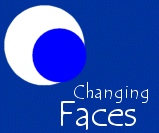
Final Report: Methods
We carried out 194 interviews across our three stakeholder groups, practitioners, policy actors and adult learners. In the first stage of the project we identified key moments, people and organizations using a national sample survey to publicise the project and to invite suggestions from the field. We also devised alternative ways for people to contribute, such as group, web and e-mail interviews. We created a website which will be maintained and developed as a record of the project and its methodology.
[See http://www.lancs.ac.uk/fss/projects/edres/changingfaces/methods.htm]
To generate more contextual depth, we clustered the fieldwork into four case study areas (Norfolk, Leicestershire, Manchester and North East London). These were selected to provide a range of activity and geographical spread. Each case study generated information on the regional implementation of national policy, and on the more micro level of policy creation and implementation. Between 15 and 27 interviews have been conducted in each case study area, plus a further sample of 34 key national figures. The sampling of interviews with the NCDS respondents were clustered around these four areas.
NCDS Interviews We used an innovative mixed methods strategy to make new use of and to link findings from a large-scale data set to qualitative life history interviews. We selected a stratified sample of 100 adults from the NCDS cohort, divided into eight different groups based individuals’ assessed basic skills, their own perceived skills and desire to improve them. The sample contained an equal number of men and women and where numbers were great enough to allow further choice, we prioritised men and women who had been directly involved in Adult Literacy or Numeracy or were members of a minority ethnic group. 78 interviews were finally carried out. [See Appendix 1 and our website for full details.]
Data Preparation and Analysis All interviews were transcribed, and returned to interviewees for comment. We devised a discourse analysis strategy using methods drawn from Fairclough, 2003; Wodak, 2001; and Sanguinetti, 1999, applied across all the interviews and other documents. The research team were trained to use Atlas-ti, a qualitative data analysis software package and we collectively developed a coding system which was trialled on a small sample of our data to begin with. We have interrogated our data through identifying claims from the literature and grounding our responses to this from the data – a grounded but also hypothetico- deductive approach. We believe this strategy could be used as a model for other research teams.
We have developed a “timeline” of events and people (available on our website) that is an important reference point for the materials we are assembling, enabling us to calibrate personal and local accounts against national public records and key policy documents. We have a general timeline covering key events, and specialist timelines covering, for example, the history of key agencies, such as the Basic Skills Agency, events relating to the professionalisation of the field, media campaigns; and events specific to ESOL.